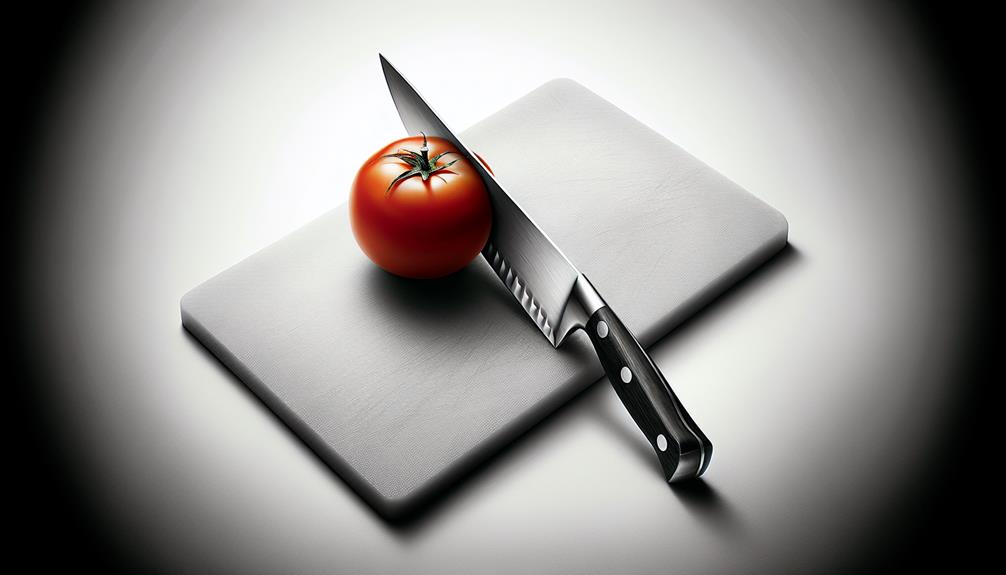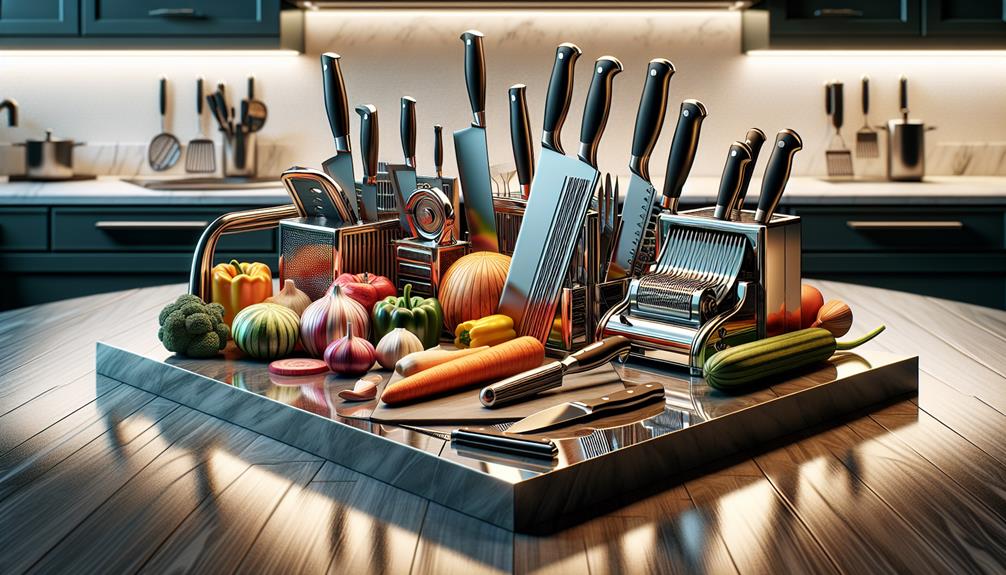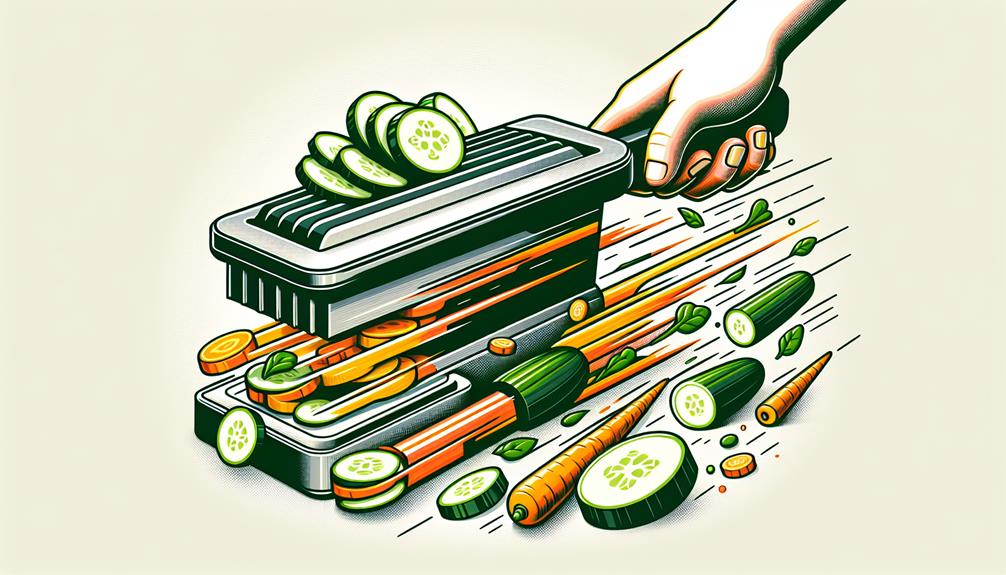When you're in the market for new cookware, you're likely weighing the pros and cons of different materials. Two top contenders, titanium and stainless steel, offer distinct advantages that can make or break your cooking experience. You might be drawn to titanium's ultra-lightweight design and exceptional heat distribution, perfect for whipping up delicate sauces or cooking sensitive fish. But, stainless steel's durability and resistance to scratches and cracks are hard to ignore, especially when it comes to high-heat searing and acidic ingredients. So, which one is right for you? Ultimately, the choice comes down to your cooking style and priorities. If you value resilience and easy maintenance, stainless steel might be the better choice, especially with its streakfree stainless steel polishing options that keep your cookware looking pristine. On the other hand, titanium’s lightweight design makes it ideal for those who prioritize convenience and modern functionality.
Titanium's Unique Properties
Titanium cookware stands out from the crowd due to its remarkable combination of high strength, low density, and exceptional corrosion resistance, making it an attractive option for home cooks and professional chefs alike. When you hold a titanium cookware piece, you'll be surprised by its lightweight strength. This unique property allows for easy maneuverability, reducing fatigue while cooking. You can effortlessly stir, flip, and serve without straining your wrists or arms. In addition, titanium's corrosion resistance is unparalleled. It can withstand extreme temperatures, acidic foods, and harsh cleaning products without reacting or degrading. This means your cookware will maintain its non-stick surface and remain durable for a long time. As a result, you'll enjoy a stress-free cooking experience, focusing on the flavors and textures of your dishes rather than worrying about the cookware. With titanium, you can cook with confidence, knowing your cookware is strong, lightweight, and resistant to corrosion.
Stainless Steel's Durability
Your stainless steel cookware is built to last, thanks to its exceptional durability that can withstand the rigors of frequent use and cleaning. You can trust that it'll remain in top condition even after years of service. One key factor contributing to its durability is its corrosion resistance. Stainless steel contains a minimum of 10.5% chromium, which forms a thin layer of oxide that protects the metal from acidic and salty foods. This means you can cook with confidence, knowing your cookware won't react with your ingredients.
Another essential aspect of stainless steel's durability is its heat tolerance. You can safely expose it to high temperatures without worrying about it warping or losing its non-stick properties. This makes it perfect for searing meat, cooking stir-fries, or boiling water. Additionally, stainless steel cookware is resistant to scratches and cracks, ensuring that it'll maintain its sleek appearance over time. With proper care, your stainless steel cookware will remain a trusted companion in the kitchen for years to come.
Performance Comparison Matters
When it comes to choosing the best cookware, it's essential you weigh the performance of different materials, as each one has its strengths and weaknesses that can greatly impact your cooking experience. You'll want to examine factors like heat distribution, as titanium excels in this area, allowing for even cooking and minimizing hotspots. Stainless steel, on the other hand, can be prone to hotspots, especially if not preheated properly.
In terms of cooking techniques, you'll want to think about the types of dishes you typically prepare. If you're a fan of high-heat searing or cooking acidic foods, stainless steel's durability makes it a great choice. However, if you're looking for a more versatile option that can handle delicate sauces or sensitive fish, titanium's non-reactive properties might be the way to go. By evaluating your specific cooking needs and comparing the performance of each material, you'll be able to make an informed decision that meets your unique requirements.
Frequently Asked Questions
Can Titanium Cookware Be Used at Extremely High Temperatures?
You'll be happy to know that titanium cookware can handle extremely high temperatures, thanks to its excellent heat tolerance and high thermal conductivity, allowing it to distribute heat evenly and efficiently.
Is Stainless Steel Cookware Dishwasher and Oven Safe?
You'll be relieved to know that stainless steel cookware is generally dishwasher and oven safe, offering convenient cleaning methods and essential safety features that provide a hassle-free cooking experience.
Does Titanium React With Acidic Foods Like Tomatoes and Citrus?
You're right to wonder if titanium cookware reacts with acidic foods like tomatoes and citrus, sparking food safety concerns. Thankfully, titanium doesn't undergo chemical reactions, ensuring your meals remain safe and healthy to consume.
Can Stainless Steel Cookware Cause Iron Deficiency in Cooked Food?
You might wonder if your stainless steel cookware is secretly stealing iron from your meals. Luckily, research suggests that iron absorption isn't substantially impacted, and nutrient leaching is minimal, so you can cook with peace of mind.
Are Titanium and Stainless Steel Cookware Compatible With Induction Stoves?
You're wondering if your cookware is induction-compatible. Titanium isn't magnetic, so it won't work on induction stoves. Stainless steel, however, can be induction-ready if it has ferromagnetic properties, ensuring efficient heat distribution and even cooking.
Conclusion
Now that you've weighed the pros of titanium and stainless steel, it's time to decide. Consider your cooking style and the types of dishes you make most. If delicate flavors and even heat are key, titanium might be the way to go. But if you're a high-heat, heavy-handed cook, stainless steel's durability is the better bet. Whichever you choose, you'll be cooking with a high-performance material that'll help you create delicious meals for years to come.





